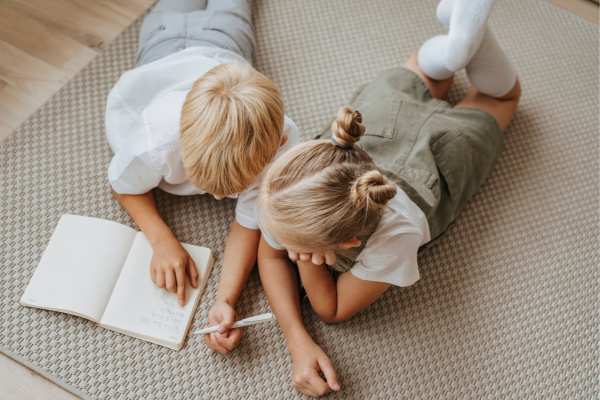MEDIATION INFORMATION FOR CHILDREN
Deciding where the children should reside? Speak to a mediator.

RESOLVE CHILD DISPUTES WITH TRUSTED MEDIATORS
When couples split and children are involved, things can get complicated. Determining child custody arrangements is key, but it’s not always easy. Sometimes, both partners want custody, and that’s when the real trouble begins. Thankfully, a trusted mediator is there to help bring peace and harmony back into your life. Our certified professionals work hard to resolve any disputes that arise from separation and custody battles. With our support, you can get back to living life to the fullest.
INITIAL MEETING
PLAN AHEAD
AFTER THE MEETING
Family Mediation FAQ
WHAT IS FAMILY MEDIATION
Family mediation can help resolve child matters by providing a platform for parents to discuss and reach agreements about issues related to their children.
Through mediation , parents are able to communicate with each other in a structured setting, which allows them to focus on the well-being of the children and come to a resolution in an amicable manner.
The mediator can help facilitate the communication between the parties and provide guidance on how best to resolve difficult matters. Mediation also allows parents an opportunity to learn new skills for resolving future disputes amicably, without involving lawyers or going through lengthy court proceedings.
WHAT ARE THE BENEFITS OF MEDIATION
The benefits of family mediation include:
1. Allowing families to focus on solutions rather than finger pointing and blaming each other.
2. Encouraging open communication between all parties which can help resolve conflicts more effectively.
3. Giving families a platform to share their feelings, needs and interests in a safe, impartial environment.
4. Promoting better understanding and respect among family members by helping them identify underlying issues and interests.
5. Providing an opportunity for all parties to come up with acceptable outcomes that are tailored to their individual needs and interests.
6. Avoiding expensive court proceedings while still settling disputes in a timely manner.
HOW TO PREPARE FOR MEDIATION?
Preparing for family mediation can take some effort and may involve an emotional process. Here are some tips on how to prepare for family mediation:
1. Educate yourself about the mediation process: Read up on the different forms of mediation, its purpose and techniques, in order to understand what will happen during the session. It will also help you understand your rights and responsibilities as a participant.
2. Find a mediator: Research and find a mediator who is experienced in dealing with your particular situation and who you trust to help you through this difficult process.
3. Gather documents: Collect documents related to your case such as bank statements, tax returns, insurance information or any other documents that will be relevant to the discussion during the session.
4. Consider options: Reflect on different solutions that might work for all parties involved, so that when it’s time for negotiation you have already thought about these potential outcomes beforehand.
5. Create an agenda: Make a list of topics or issues that need to be discussed during the mediation session so that you can stay focused throughout the process and keep track of progress made each step of the way.
WHAT IS THE ROLE OF THE MEDIATOR?
The role of the family mediator is to help families resolve conflicts through communication and collaboration. The mediator acts as a neutral third-party who facilitates conversations between family members and helps them find mutually agreeable solutions to their problems. The mediator can also provide education, resources, and support throughout the process.
AVOID DRAGGING YOUR CHILDREN THROUGH COURT
Mediation can help you avoid court for child matters, freeing you to focus on what matters most – your kids. With a mediator’s guidance, parents, guardians, and family members can come together to discuss the child’s care and wellbeing and create a brighter future for the little ones.
Through this process, all parties can work together in a collaborative manner to reach an agreement that takes into account the needs and best interests of the child.
The Trusted Mediator is there to ensure respectful dialogue between all parties involved and will help them explore potential solutions that are suitable for everyone involved.
This type of mediation is especially beneficial when dealing with issues such as guardianship arrangements, parenting plans or visitation schedules.
It allows families an opportunity to identify their own solutions to any conflicts they may have and gives them control over the outcome of their situation.
This is much better than going through lengthy legal proceedings in court where decisions are imposed by a judge rather than an agreement reached by the parties themselves. Family mediation with Trusted Mediators also helps create more positive relationships between family members which can benefit the children in the long run.
